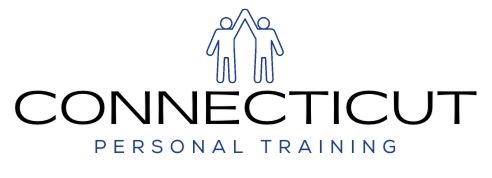Choosing a nutrition coach can be an important and beneficial move in your journey to reach your fitness and dietary objectives. When it comes to weight loss, whether due to a medical condition or simply a desire to enhance one’s diet, having a coach can be incredibly beneficial. A coach can tailor a personalized plan that aligns with the client’s goals and needs. Let’s explore the essential details on how, when, and where to find the ideal nutrition coach for your needs.
Understand Your Goals
It is important to understand your goals before looking for a nutrition coach. Below are some of the questions that one needs to answer in order to choose the right nutrition coach: Are you aiming to:
– Lose weight?
– Gain muscle?
– Improve digestive health?
– Manage diabetes or hypertension?
Thus, defining the general objectives, you will be able to determine a more definite type of coach who is more suitable for achieving your goals.

Research Qualifications and Certifications
Look for Professional Credentials
He or she should possess a set of academic degrees and special certifications that prove the expertise in the subject.
There are few qualifications that should be looked for:
– Registered Dietitian Nutritionist (RDN): This is a professional designation that is awarded to a dietitian who has undergone practical training sessions and passed through an academic exam.
– Certified Nutrition Specialist (CNS): This certification is available to personnel with a graduate degree in nutrition or any related course and further education.
– Certified Personal Trainer (CPT) with Nutrition Specialization: As a CPT with a nutritionist focus, depending on your needs, they can help with your fitness diet plan.
Check for Specializations
Specializations of nutrition coaches may include one that might be highly valuable depending on the individual need of the person they are serving.
For example:
Sports Nutrition: Best suited for athletes
Clinically Nutritive: Useful in disease management.
Vegan or Vegetarian Nutrition: For people on vegan or vegetarian diets.
Assess Experience and Expertise
Evaluate Their Experience
Experience in the field is one thing that strongly suggests that a particular coach will be able to assist you in the achievement of your objective.
Consider the following:
Experience: While choosing a good coach you should make sure that your potential trainer has several years of practice.
Client Success stories: Success stories or testimonials can be useful to determine their capability.
Specialization: Many people have special needs and a coach must understand your issue regarding diet.
Read Reviews
It is very useful to read the experiences of the people who have already worked with the specialists.
Look for:
Positive Feedback Coordination: Frequent positive feedback across different sites means that the coach is trustworthy.
Specific Outcomes: The cases that are described in the reviews may help you to get an understanding of what to expect.
Evaluate Their Approach and Methods
Personalized Plans
A good nutrition coach must ensure that he or she designs different nutrition plans according to one’s diet requirements and regime.
Ensure they:
Gather Adequate Information: They should be willing to sit with you and know more about your eating patterns, exercise regimes, and medical history, among others.
Use of Evidence-Based Practices
They should:
Give a Synopsis: Make sure you are in touch with the current literature and research findings in matters relating to nutrition.
Not Use Crash Diets: Do not fall for coaches that offer extremely popular diets or special boosts.

Check for Transparency and Accessibility
Clear Pricing and Policies
There must be clear and fair rates for pricing as well as clear policies that are stated before applying them.
Pricing: Know about each service, product, and package offered and the prices in detail, including any extra charges for supplements or additional consultations.
Specify Length of Engagement: The terms of the contract should give details of whether it will be long term or short term and what is expected of both the parties during the commitment.
Accessibility and Support
Consider how easily one can get a hold of the coach and the kind of help he or she provides.
Look for:
Availability: They must be able to work on projects whenever the records require or can check with multiple customers if necessary.
Additional Feature: Some coaches provide access to group calls or community which also can be helpful.
Utilize Technology and Tools
Digital Platforms and Apps
Consider whether they offer:
Tools of Tracking: Applications to track your performance as well as the necessary changes.
Web Based Materials: Blog, video tutorials, or any other webinars that the patient may use for more information.
Virtual Consultations
Due to technological advancement and the norm of practicing social distance, virtual consultations are well accomplished. This can be advantageous in case you don’t want to travel or have a tight schedule.
Trust Your Instincts
Last but not the least, do not be afraid to follow your gut feeling when selecting your nutrition coach. You should trust them and be assured that they can assist you in the fulfillment of your goals.



